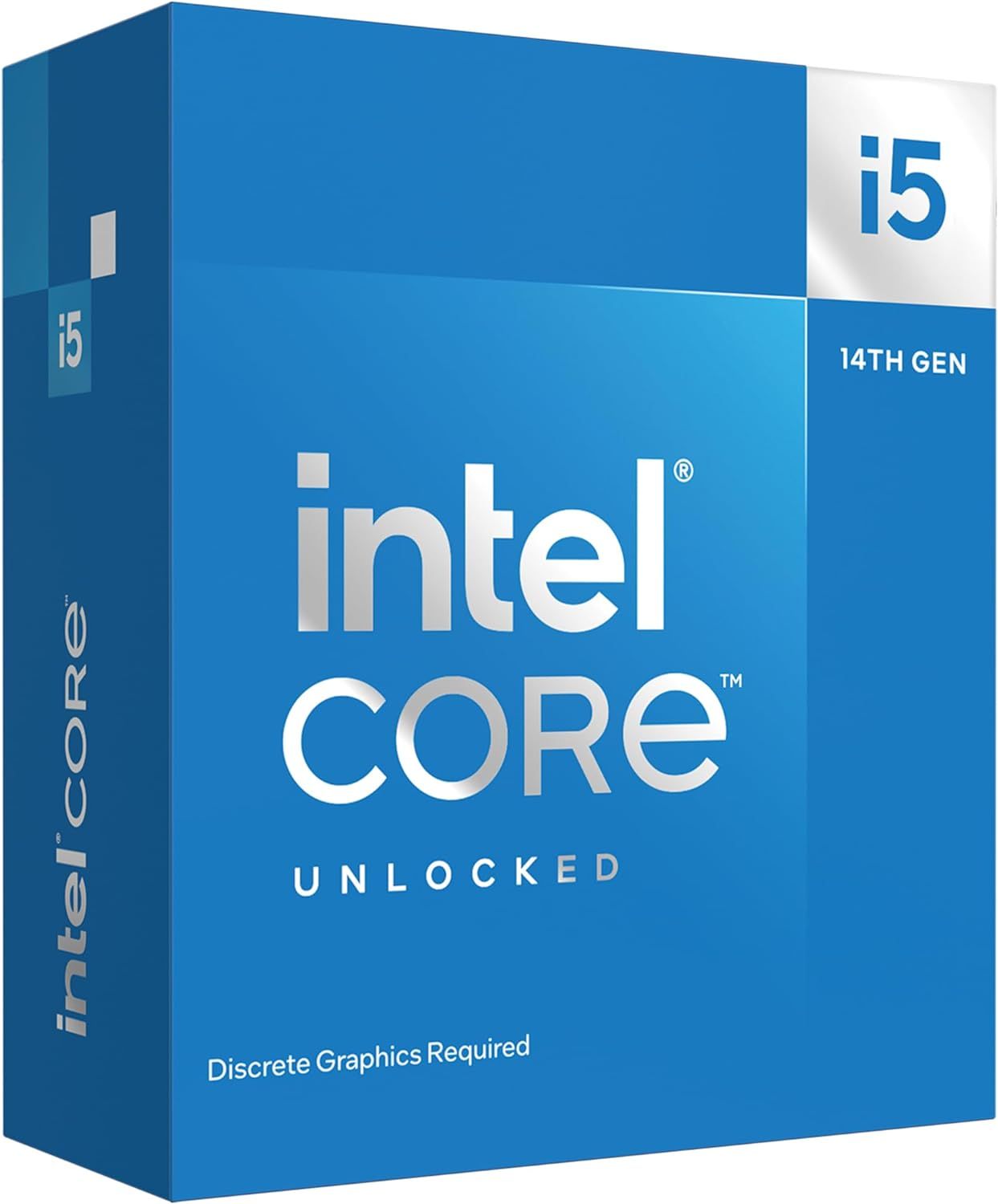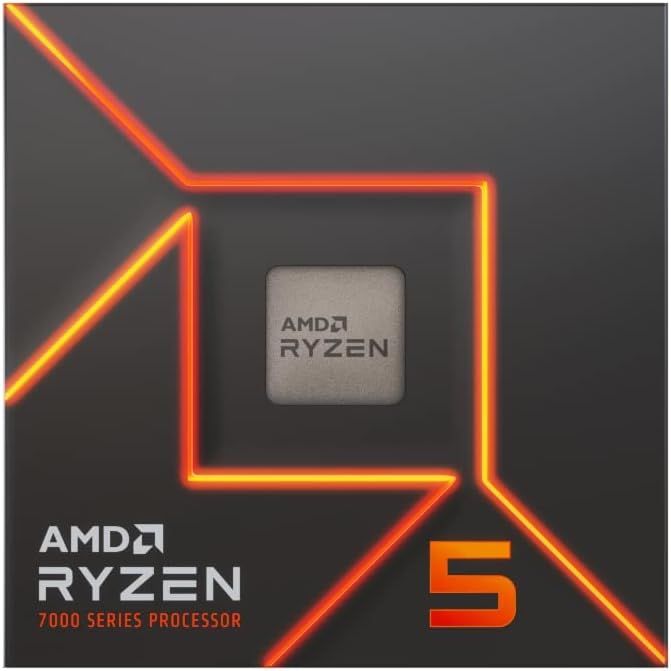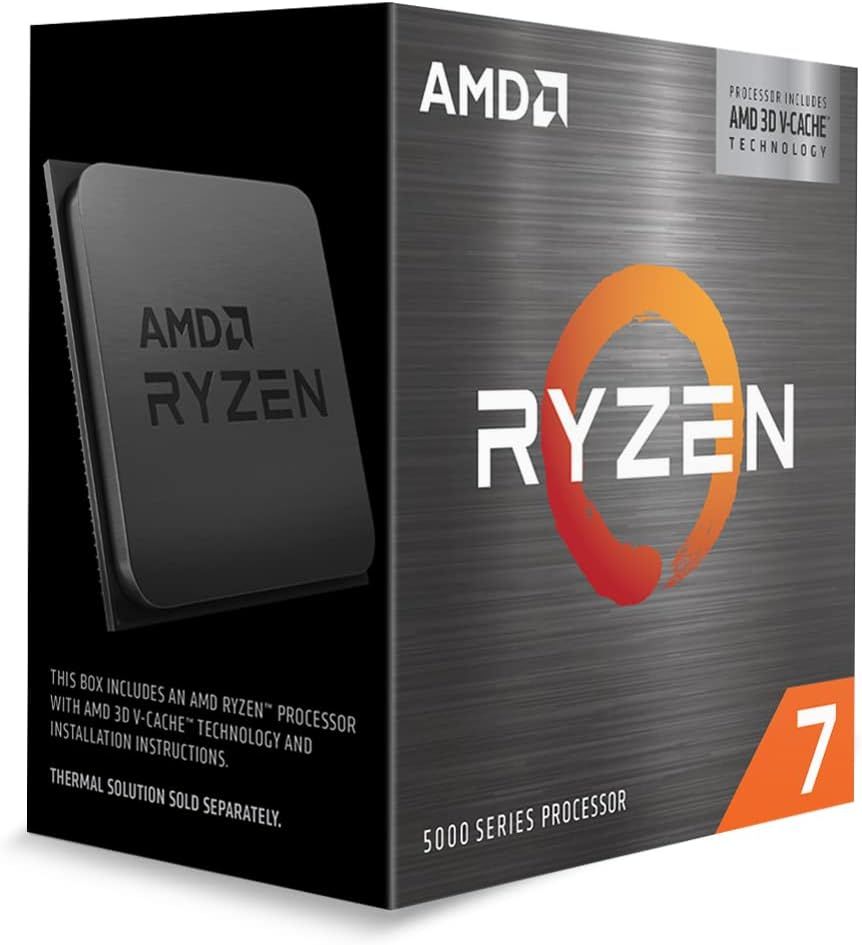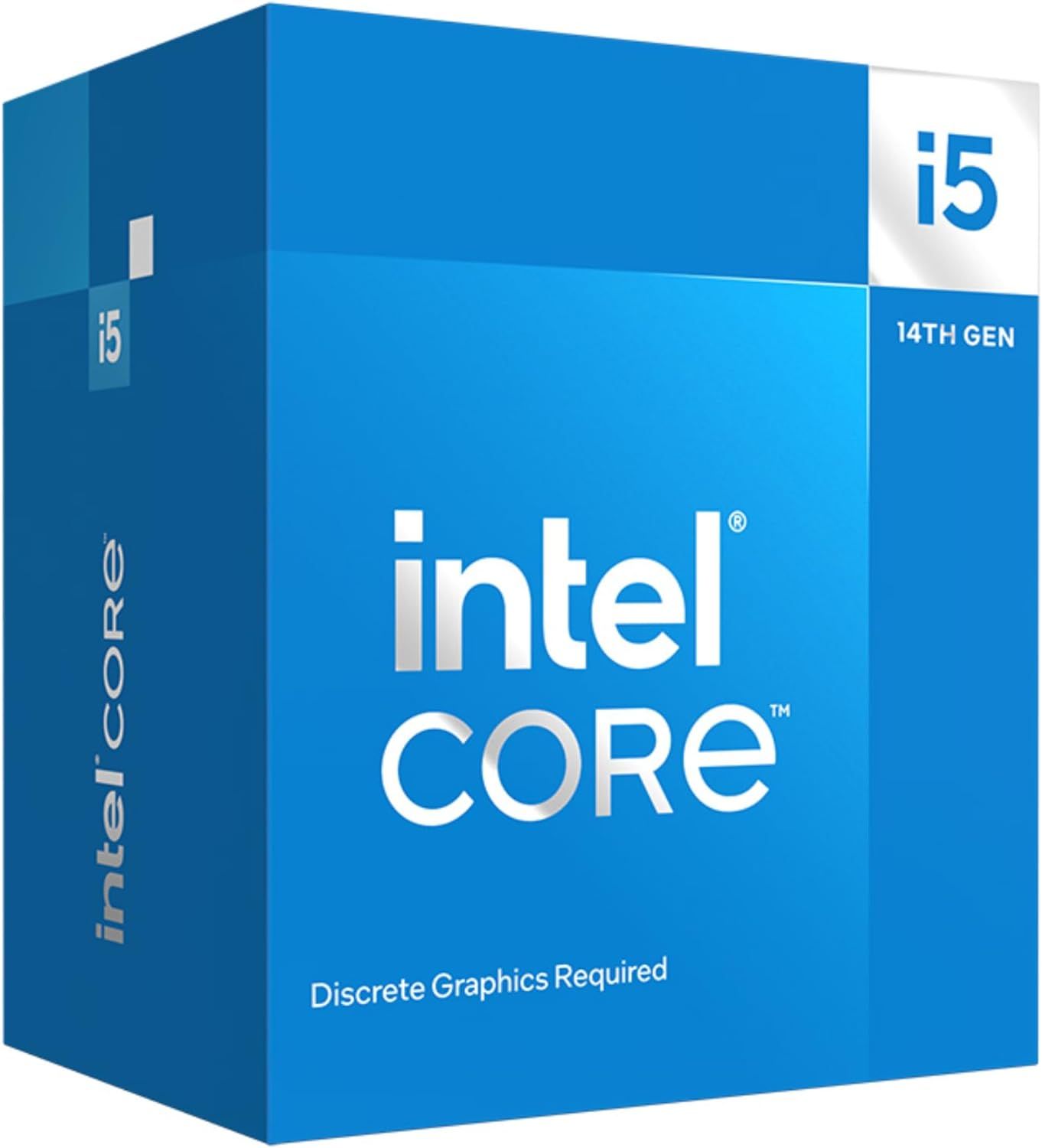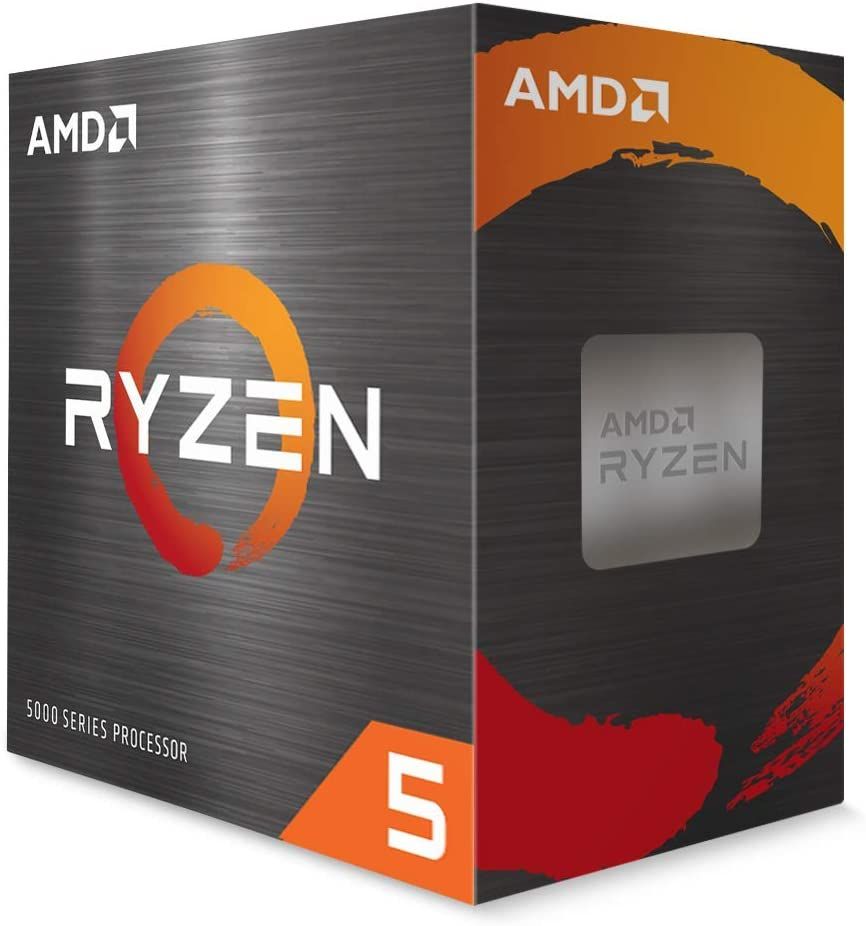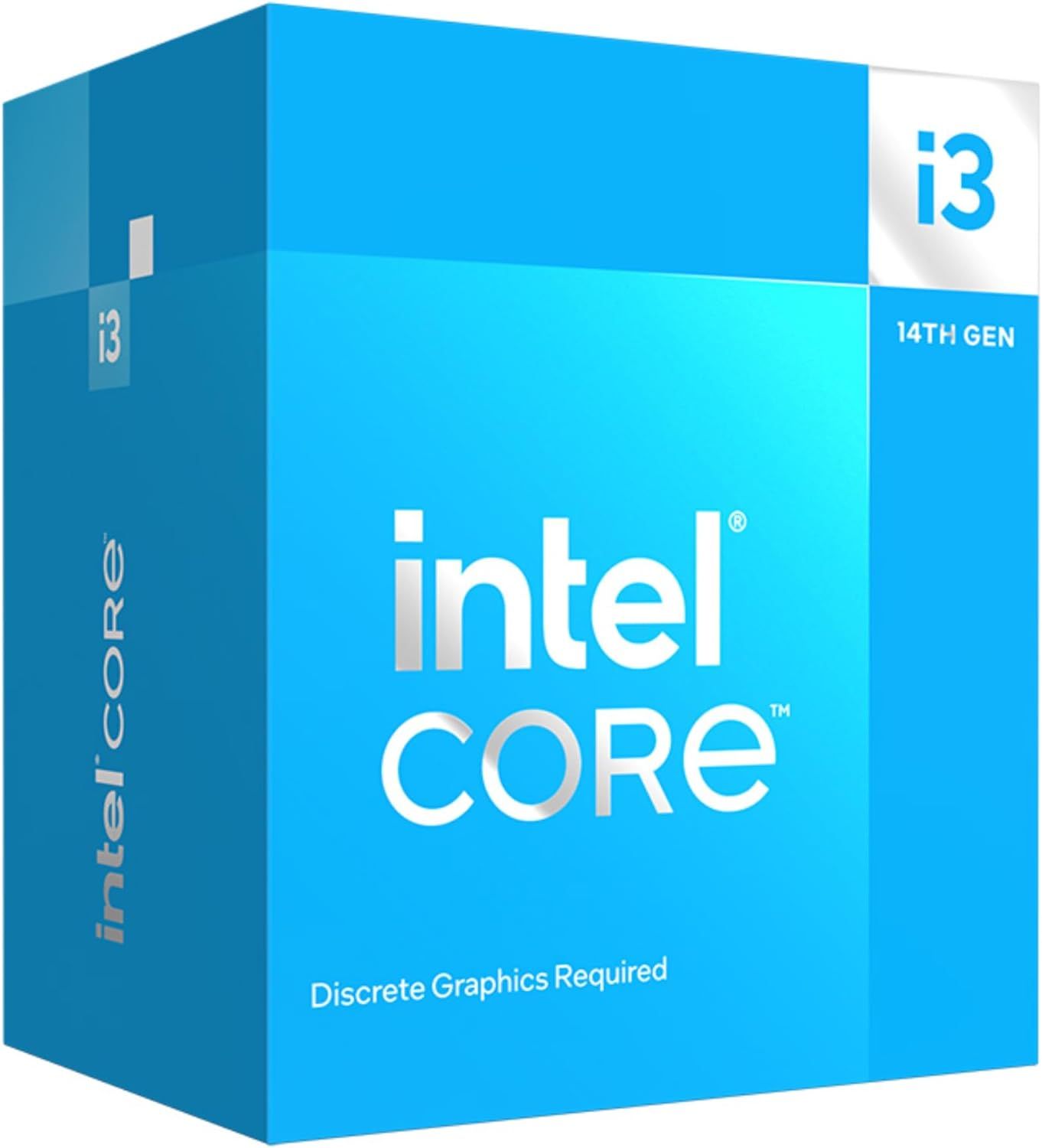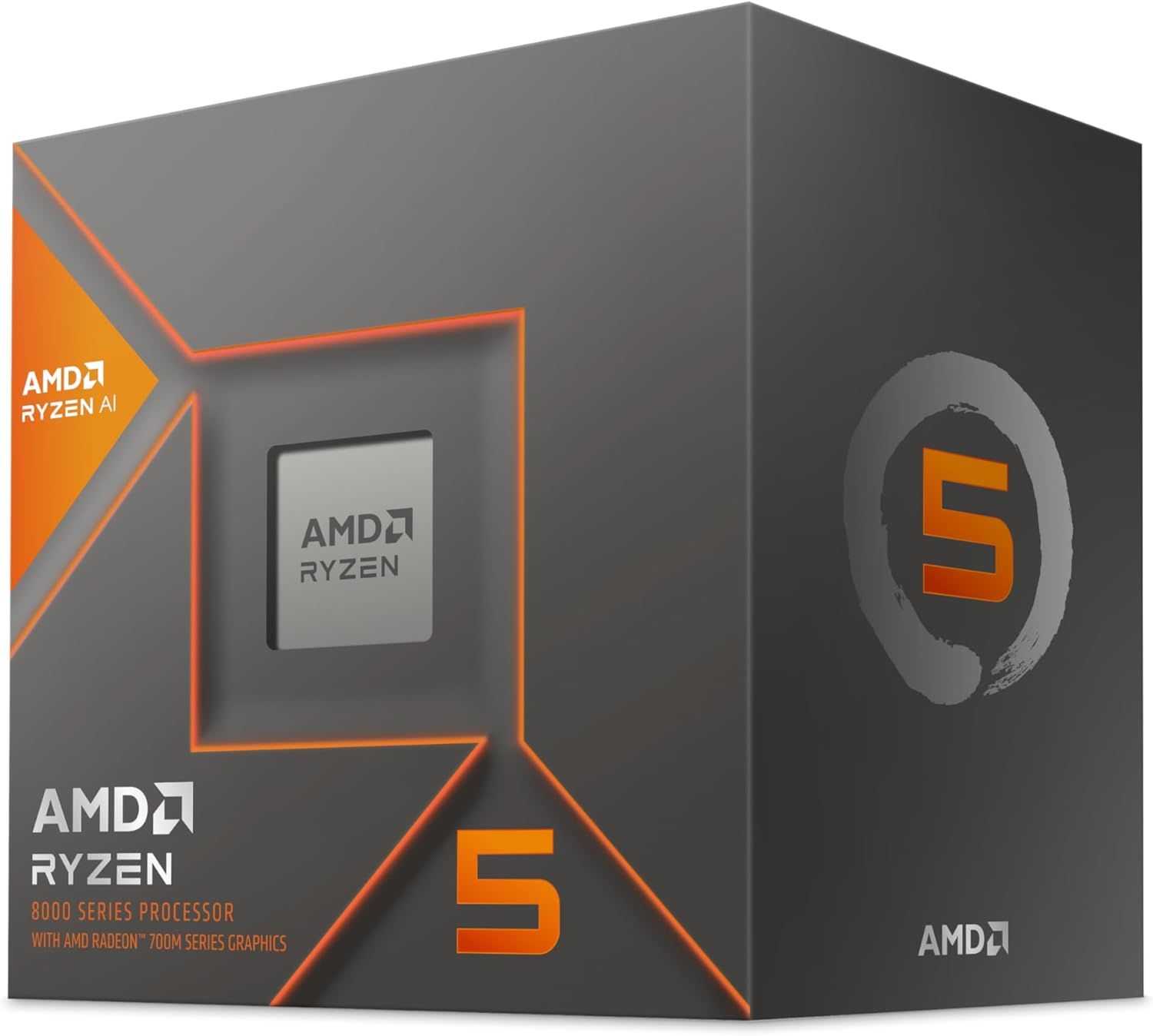In recent years, gamers have focused their attention more on saving up funds for the latest graphics cards rather than purchasing powerhouse CPUs. With the ability to transform a meager system into a full-fledged gaming champion with a simple GPU swap, this change in priorities is understandable. Even so, processors remain the brains of any PC, and CPU-intensive titles like Call of Duty: Modern Warfare still demands adequate Intel or AMD chips.
For gamers with limited funds, considering the exorbitant cost of graphics cards, finding the best budget CPU for gaming becomes an even more difficult task requiring research and deciding on various price-to-performance implications of certain decisions going into 2024.

Intel vs. AMD: Which CPUs are better?
Trying to choose between an Intel or AMD CPU? Here's our comparison of how they break down against each other!
Game ZXC's Picks for the Best Budget CPUs for Gaming
Using price, value for money, and gaming performance as key metrics, the team at Game ZXC has handpicked the best budget CPUs for gaming in 2024 below:
The Intel Core i5 14600KF is arguably the best value-for-money processor for gaming currently as it skips an iGPU to clock in just under a $300 MSRP for a 14-core, 20-thread behemoth that also offers a higher boost clock speed than the older Intel Core i5 13600K CPU. It conclusively beats AMD's Zen 4-based unlocked Ryzen 5 7600X and Ryzen 7 7700X CPUs that trade in the $200-300 price range in multiple gaming and productivity benchmarks even as it flexes its productivity prowess going into 2024, building on the value of its predecessor.
While it does offer significantly better performance than its last generation counterpart as well as AMD's alternatives in the same price range, it does have demanding thermal cooling requirements even as it doesn't come with a stock cooler. While that is not an issue for most gamers, many of whom go for high-end AIOs or air coolers for Intel's unlocked CPU lineup, it should be considered as an added expense for system builders when factoring in a large upgrade or a brand-new PC in 2024.
All in all, the Intel Core i5 14600K remains, much like its predecessor, a potent performer that is also Intel's best CPU for gaming when price-to-performance ratios are factored in. It does, in the absence of a 6-core Ryzen 7000 series X3D player at its price point, win handily in most gaming benchmarks with ease.
The Intel Core i5 14600K and the 14600KF are currently part of a set of qualifying Intel 14th-generation CPUs that get a free copy of Star Wars Outlaws at launch as part of an ongoing promotion.

The Best Intel CPUs in 2024
Intel has had a strong year, finishing off with the 14th generation of its processor lineup. But how does it stack against itself in 2024?
The 6-core, 12-thread AMD Ryzen 5 7600 is arguably one of the best gaming CPUs money can buy for just under $200 currently. It offers AMD's newer Zen 4 cores, an unlocked chip, and access down the line to its newer AM5 platform for future upgrades. It also allows users to save on investing in a CPU cooler - AMD bundles 1 in the box for users building for the first time or not having an AM4/AM5 thermal solution in tow.
Not only can it be pushed to the Ryzen 5 7600X's clock speeds with relative ease, but it remains significantly more efficient than its competition, and at its rated speeds, considerably better in terms of price-to-performance even versus AMD's slightly higher-end hexacore CPU currently. All in all, the Ryzen 5 7600 muscles into gaming territory that previously was dominated by Intel's 12th generation Core i5 CPUs with ease and holds its own versus the competition from within and without alike.

Best AMD CPUs For Gaming in 2024
The best AMD CPUs make any gaming experience better, and these are the best AMD CPUs you can buy right now.
For users looking to stay on their existing AM4 motherboard and RAM combination at a sub-$200 budget, the AMD Ryzen 7 5800X3D might be too pricey as it continues to oscillate at a sub-$300 price tag. The recently released AMD Ryzen 7 5700X3D however might be the CPU most of the holdouts are waiting for in 2024. Unlike the 5600X3D, it comes with a full 8-core, 16-thread configuration and performance that comes within spitting distance of the faster 5800X3D.
It is a cheaper upgrade than most users on AM4 than building around AMD's newer Ryzen 5 7600/7600X CPUs once users factor in the cost of an AM5 CPU, motherboard, and newer DDR5 RAM modules together. Due to its tamer clocks, it does run relatively more efficiently than most of its competition and isn't as demanding as some of Intel's counterparts when it comes to thermals while gaming.
The AMD Ryzen 7 5700X3D does have its drawbacks, most of which stem from users embracing an end-of-life platform in 2024: it only supports DDR4 RAM and older PCI-E 4.0 storage (and GPU options). It also, unlike newer Zen 4-based AMD CPUs has no upgrade path with the 5800X3D being a relatively minor gain at best for gamers aiming to eke out an upgrade later down the line.
Much like its predecessor, the Intel Core i5 14400F offers some of the best value for gamers and power users alike at a sub-$200 price tag. This is due to its high single-core clocks that help it contend with the newest games as well as its deca-core configuration offering 16 threads, making it a viable multitasker that does well with games that can utilize them well.
The Intel Core i5 14400F ups the ante on its CPU cores with a 200 Mhz boost on performance cores and 100 Mhz on its efficient cores alike. While it offers a very small upgrade as a result versus the 13400F, it also sees no price increase versus the last-gen Intel offering, making it a no-brainer. For what it's worth, AMD's Ryzen 7600 and 7600X are faster for gaming in general but the 14400F does bridge some of that gap thanks to its higher clocks on offer, making it a viable option at just under $200.
The processor allows users to cut down on the cost significantly on the motherboard and the CPU cooler (thanks to the included stock option) by adjusting around its limitations. Given that the 14400F is a locked chip, users can simply pair it with an entry-level motherboard and the stock cooler or with higher-end Z790 chipset-based motherboards to make upgrades an easier affair.
The Intel Core i5 14400F is currently part of a set of qualifying Intel 14th-generation CPUs that get a free copy of Star Wars Outlaws at launch as part of an ongoing promotion.
The AMD Ryzen 5 5600X is a decent mid-range hexacore CPU, offering 12 threads across its 6 cores in an unlocked package. It comes with an adequate thermal solution out of the box, a rarity for an unlocked CPU that provides adequate cooling unless users plan to overclock the CPU.
As a middle-of-the-road option in AMD's AM4 inventory, the 5600X will remain relevant longer than most processors even as it remains a popular choice in multiple PC markets due to its value proposition, easy availability, and a bundled stock cooler on an unlocked CPU. That is likely even after the 7600X's launch with significant performance gains simply due to the sheer number of AM4-based PCs out there looking for a cost-effective upgrade. For system builders who decide against a pre-built budget PC for a DIY experience, there are also a substantial number of affordable AM4 motherboards to pair with this processor.
At the same time, the AMD's 5600X's age does show when it gets compared to newer Intel CPUs. Somewhat disappointing single-core performance does tend to show in multiple esports titles where Intel's slightly cheaper Core i3-based quad-core solutions have an advantage. Regardless, the 5600X remains a sensible overall alternative for most games, clocking in the right amount of cores, clock speeds, and IPC counts which sees it heavily feature in both, hardware recommendations and prebuilt PCs well into 2024.
The Intel Core i3 14100F offers yet another iteration of Intel's rebadged Alder Lake-based silicon in a 4-core configuration much like the Core i5 14400F above while raising core clocks to keep things in check. The cores come with a smaller L2 cache than their beefier Rocket Lake counterparts even as they both carry the same "Raptor Lake Refresh" moniker.
The Intel Core i3 14100F is the fastest quad-core CPU on the list currently and with good reason: most games have shifted their recommended hardware requirements to at least a 6-core CPU in 2024 and while the 14100F can play most, if not all games currently, this could change relatively fast soon.
Thankfully the 14100F has upgrades available for users down the line across 3 generations of Intel CPUs even as motherboards continue to get cheaper for the Intel LGA 1700 platform over time. This makes it Intel's best entry-level budget CPU despite its shortcomings thanks to the value it offers and solid upgrade paths available to users versus legacy AM4-based CPUs like the 5600X above.
For users looking for the upgrade to AMD's Ryzen 5000 series APUs for budget gaming, the AMD Ryzen 5 8600G 6-Core, 12-Thread CPU is arguably the best value-centric upgrade available to them. The APU is essentially the middle-ground offering between the higher-end Ryzen 7 8700G and the lower-tier Ryzen 5 8500G APUs. It comes unlocked out of the box and can be pushed higher based on user needs (with adequate cooling in tow).
The AMD Ryzen 5 8600G is a capable contender that bundles the mobile GPU that many Ryzen 7000 and 8000 series CPUs offer at the higher end: The Radeon 760M. It does clock it aggressively high but users can push it even higher with a better 3rd party cooler. Doing so would somewhat be counterintuitive unless they have a spare cooler given the price increase could put it within spitting distance of the faster 8700G APU which also comes with a beefier stock cooler.
The 8600G is a powerful APU in its own right with a large incremental upgrade over its older Zen 3-based APU alternatives but one that does make compromises to get there. It lacks PCI-E 5.0 support for starters while reserving most of its PCI-E 4.0 lanes resulting in only 8 lanes available for a discrete GPU down the line. Also, while it does scale well with better, higher-clocked memory on offer, it does somewhat have very visible performance scaling barriers given its positioning as a mid-range APU with a capable, but limited iGPU offering in 2024.
Game ZXC recommends reading the team's review of the AMD Ryzen 5 8600G to make an informed purchase in 2024.
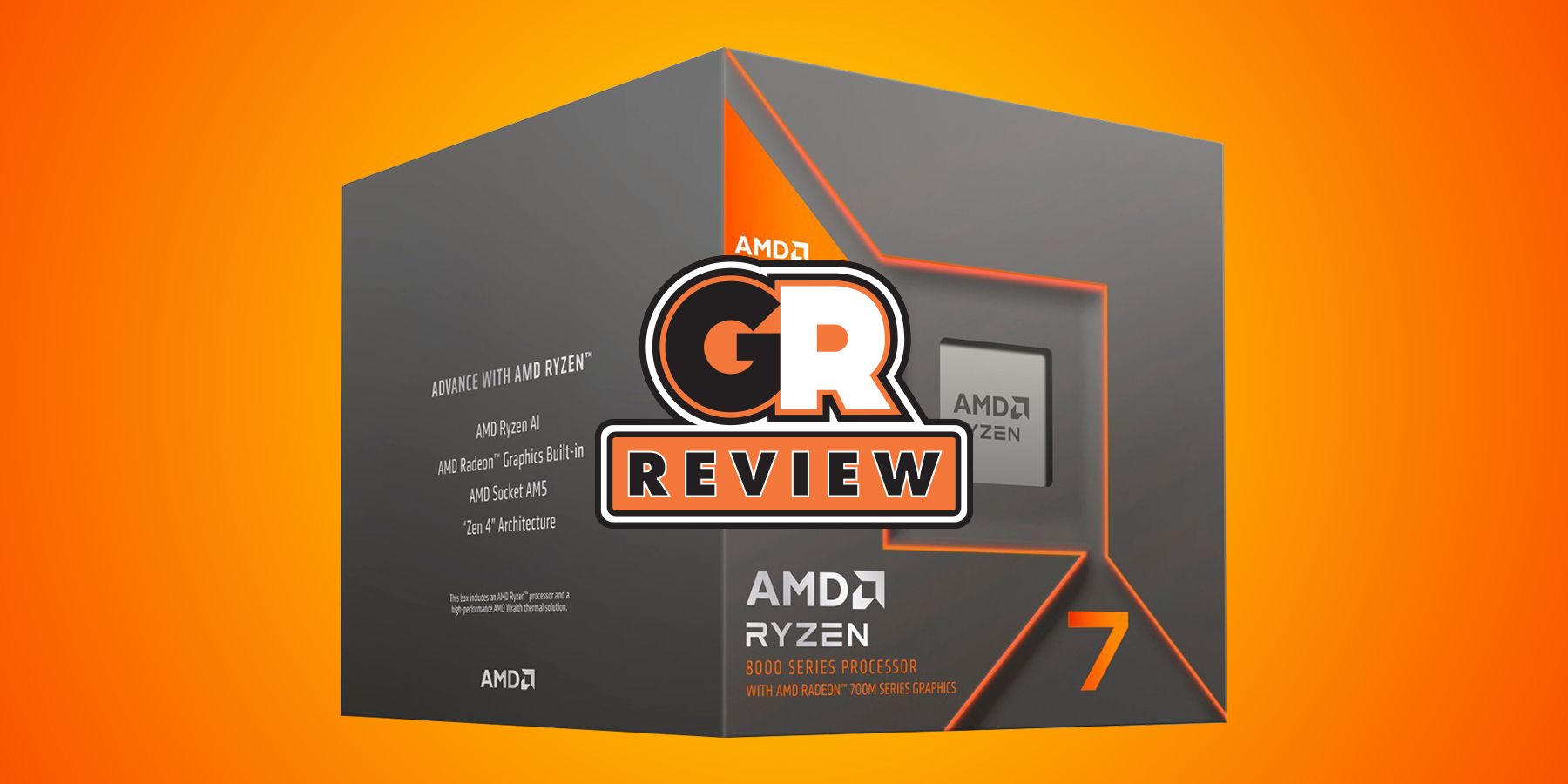
AMD Ryzen 7 8700G Gamer's Review: Phoenix Rising
AMD's Ryzen 7 8700G is now on sale and it has a lot to prove as the flagbearer of AMD's Zen 4 Mobile-based Desktop APUs in 2024
Finding the Right Budget CPU For Gaming
While modern CPUs are significantly faster in terms of clock speeds and core counts, that is not the only thing that drives their performance while gaming. Gaming on a budget CPU requires looking at various facets of what truly makes a CPU great for gaming while making a price-conscious choice:
- Clock Speeds and Instructions per Cycle: Clock speeds are often highlighted as being the key factor for CPUs while gaming. While this is true, a lot of onus when it comes to performance comes down to Instructions Per Cycle or IPC counts. Newer, faster cores can simply do more clock for clock than their predecessors and a modern CPU at a lower clock might outperform an older one despite it running at a higher clock speed.
- Manual Overclocking: While nearly all modern Desktop CPUs have boost clocks which are essentially overclocking in a nutshell, some Intel and AMD CPUs do not offer manual overclocking, operating in a fixed range of base and boost clocks. This means that gamers are sometimes range-bound in terms of performance from chips that can not be tweaked to eke out better performance by power users.
- Compatibility: When users are on a budget, costs are overwhelmingly a factor in every purchase decision they make. Ensuring one gets a CPU that is compatible and does not bottleneck existing hardware or require something like a new motherboard is a great way to stay within budget while allowing users to spend more on performance-oriented hardware.
- Integrated Graphics: While most gamers do not consider integrated graphics a gaming consideration, often opting to get cheaper SKUs from Intel and AMD such as the 'F' series from the former to save money, some APUs like the AMD Ryzen G lineup do offer a decent integrated graphics experience for gamers on a budget.
- Upgradeability: Modern CPU sockets see multiple generations of CPUs before they go out of date. This means that one getting a new CPU at the tail-end of a socket's life cycle could impede future upgrades as well as performance gains without a motherboard swap. This also applies to memory upgrades with older chipsets and sockets like AMD's AM4 restricted to DDR4 memory versus its newer AM5 socket-based motherboards that are exclusively DDR5-based and also support newer tech such as PCI-E 5.0 SSDs and GPUs.
Have Problems Deciding On A CPU?
There may only be two main players in the CPU arena, but each produces enough processors to cause some confusion when building a PC. Especially when on a limited budget, it's problematic to decide whether to invest more in a CPU or other vital gaming components like a graphics card. To speed up the process, remember to consider these characteristics which vary dramatically among processors.
Clock Speed and Cores
Clock speed isn't the only spec that determines how capable a CPU is, but it's important regardless. The AMD Ryzen 5 7600X has one of the highest base clock speeds out of the budget contenders at 4.7 GHz. Its six-core configuration is nothing to scoff at, but it especially excels at the single-core performance that many games demand. On the other hand, the Intel Core i5 14400F CPU is a perfect processor for power users looking to game from time to time. The 13th-generation processor thrives not only in games but also in intensive productivity tasks thanks to its total of 14 cores handling 20 threads in a 12+8 config.
Overclocking
Most of the processors in this guide are overclockable, meaning that their base clock speeds can be pushed beyond their stock values. Intel CPUs with a K in their labels (like the Core i5 14600KF) are easily boosted and are even encouraged to do so by the manufacturer with suggested safeguards. However, buyers of the rebadged Intel Core i3-14100F will find that its core multiplier is locked, severely limiting its overclocking potential. Gamers need to also be aware of the thermal requirements of overclocked CPUs and should consider adequate air coolers or even budget AIO liquid coolers in some instances.
Compatibility
Finding the best budget CPU for gaming won't matter without the right components to support it. The AMD Ryzen 5 5600X calls for slightly older motherboards using the AM4 socket and DDR4 memory. More recent AMD CPUs like the Ryzen 7600X or 8600G demand AM5 motherboards and even faster DDR5 RAM. In some cases, motherboards may need a BIOS update to support the newest hardware, such as AMD's Ryzen 7000 series' X3D refresh as well as Intel's 13th and 14th generation CPUs.
Integrated Graphics
Relying on a CPU with an integrated graphics chip often causes some debate, especially when assembling a budget gaming PC. In most circumstances, gamers are better off purchasing a budget discrete graphics card they can afford. Still, one reason why the AMD Ryzen 5 7600 earned a recommendation in this guide is that its onboard Radeon graphics controller is surprisingly capable of pumping out decent frame rates in some esports titles without a dedicated GPU in play.
Whichever budget gaming CPU in this guide that a buyer ultimately decides on, it can help an affordable gaming rig punch its weight without bottlenecks in play for its price range irrespective of the choice.
Upgradeability
Buying a new CPU is not an isolated purchase; it must be paired to a supporting motherboard, and therefore a CPU socket. While the CPU is the brains of the operation, users might want to consider whether the tech it directly supports can handle future upgrades and performance gain potential. Ideally, users want a CPU that supports DDR5 memory natively while also offering PCI-E 5.0 support for GPUs and SSDs. This allows a degree of future-proofing that enables other PC gaming upgrades to deliver the maximum performance gains they potentially bring to the table.
This is also why Game ZXC's budget gaming CPU guide features a significantly higher number of DDR5 and PCI-E 5.0 compatible CPUs, allowing for easier motherboard, memory, and GPU upgrades versus CPUs on more legacy chipsets (like the AMD AM4) such as the Ryzen 5 5600X, which will see its upgrade potential capped to the Ryzen 7 5800X3D, at best, in the coming months.

The Best Gaming CPUs in 2024
The best CPUs for gaming have to stand out in an increasingly competitive space. These are the best you can buy right now.
FAQ
Q: What is the fastest budget gaming CPU?
The AMD Ryzen 7 7800X3D, leveraging its larger L3 cache and newer Zen 4 cores, is currently one of the fastest AMD processors that's also relatively affordable.
Q: Is an integrated GPU needed for gaming in 2023?
Yes and no. While the iGPU generally is disregarded by gamers, it is a handy alternative for some when trading up GPUs, allowing them to sell their older GPU before upgrading to a newer one. It is equally valuable for diagnosing PC issues at times, allowing users to eliminate the discrete GPU as a cause of any errors by allowing an alternate display option.



